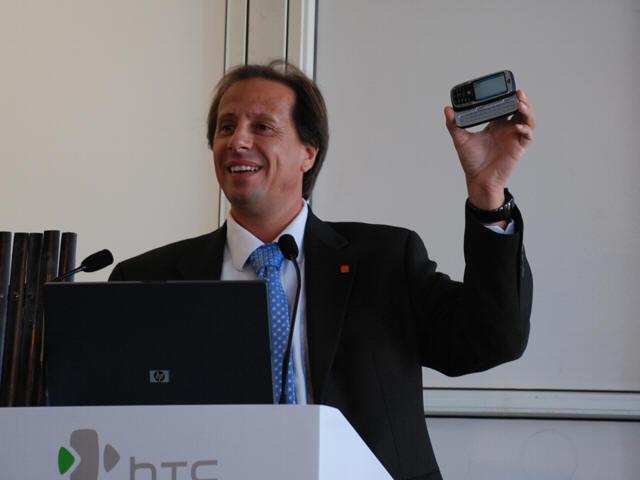Orange exec says developing markets can't sustain 'gas guzzlers' iOS, Android, Windows Phone
In an interview with All Things D on Thursday, Maitre said that current mobile operating systems are not lightweight enough in both cost and bandwidth usage to be a feasible option for developing markets.
The Orange executive concedes that Apple's iOS and Google's Android has created a rich mobile ecosystem for mid to high-end phones which has allowed Orange to build a strong lineup of devices in its major European markets. That expensive ecosystem doesn't translate to the "6 billion" possible smartphone users in emerging markets like China and India, which may not be able to support data-heavy plans or expensive feature-rich devices.
Maitre used the automobile business as an analogue for the current state of smartphone technology, saying that when he was growing up in France, the big-block eight cylinder cars from Detroit were idolized. As the world realized that gas was a limited resource, the gas guzzlers from America ceded their position to more economical six or four cylinder options like those made famous by Japanese auto makers. The same is true of the mobile OS environment, the resource in this case being bandwidth.
Even Google's open Android OS, which enabled OEMs to produce relatively cheap devices, is said to be too resource-intensive as it continues to add new features in its fierce competition with Apple's iOS.
Orange Vice President of Devices Yves Maitre at an HTC product event in 2007. | Source: The Unwired
“I cannot run an eight-cylinder car because it is too expensive,†said Maitre. This is especially true in emerging markets where smartphone may have the draw, but consumers lack the funds to hold pre-paid data plans.
Customers in developing areas may be willing to pay a $30 premium on the average $54 Orange handset to upgrade to a smartphone, but it is doubtful that they will be able to spend another $100.
“If we are not in a position to give them a smartphone at $80, we will miss the six billion,†Maitre said in reference to the number of possible customers, adding that Orange will use other operating systems if needed to reach that price point. “If I cannot have Microsoft on it, if I cannot have Android, if I cannot have iOS, then I will look somewhere else, mostly likely in China.â€
The carrier is looking at a variety of operating systems to fit their low-cost needs including Mozilla’s Boot-to-Gecko, the Linux-based Tizen and Chinese Android variants.
Maitre also notes that bandwidth is becoming an increasingly limited commodity, saying that about one billion people active users consume less than one gigabyte of data per month.
“Tomorrow, seven billion people will use bandwidth and all use (in the range of) five or six gigabits [0.625 or 0.75GB],†he said. “The bandwidth will start to become a very valuable resource.â€
 AppleInsider Staff
AppleInsider Staff











 Malcolm Owen
Malcolm Owen
 William Gallagher and Mike Wuerthele
William Gallagher and Mike Wuerthele
 Christine McKee
Christine McKee
 William Gallagher
William Gallagher

 Marko Zivkovic
Marko Zivkovic









